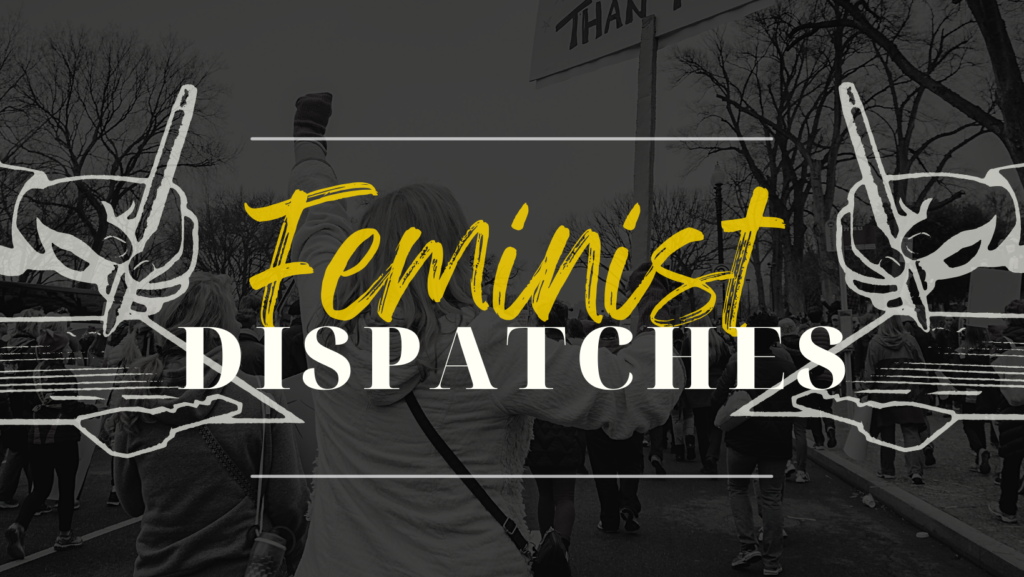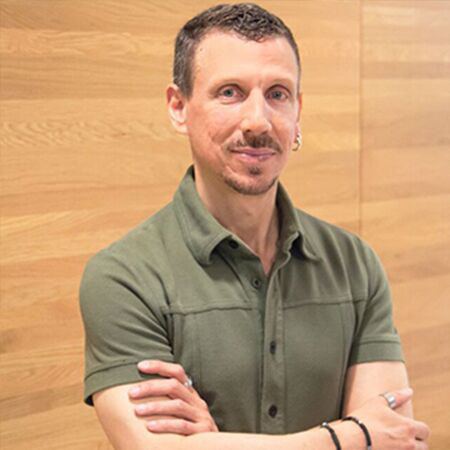Dispatch by Elaine Coburn

Scholars, community members, service providers and activists were warmly welcomed on November 8, 2023 at the downtown Toronto YMCA. The occasion was a convivial and important discussion about 2SLGBTQ+ people and poverty, by and for 2SLGBTQ+ folks.
The evening celebrated the launch of the Social Sciences and Humanities Research Council project, “2SLGBTQ+ Poverty in Canada: Improving Livelihood and Social Wellbeing”.
Led by Professor Nick Mulé, the project makes visible the everyday challenges faced by 2SLGBTQ+ people as they deal with the challenges of living in poverty and seek well-being.
The event was opened by Nick Manyan, who works with Rainbow Connect to support 2SLGBTQ+ newcomers to Canada. Manyan reminded everyone that the space was a safe one for exchange, although participants may hold different views.
The project, he recalled to participants, seeks to share the voices of 2SLGBTQ+ people living in poverty and to develop policies to better support them.
"The project...share[s] the voices of 2SLGBTQ+ people living in poverty."
Different scholars and activists working to end poverty and improve 2SLGTQ+ people living then offered their insights into the project.
Dr. David Kinitz described his own work, beginning with the question: “What does precarious labour mean?”. This is an academic concept, he observes, and it is not obvious what it means in everyday life.
Practically, precarious work refers to a whole range of workers, Kinitz observed, from uber drivers to cleaners. They work at jobs where they can be easily fired, where they may face unsafe work conditions, and where they have few supports, for instance, for health care
As they look for their first jobs, Kinitz remarks, some 2SLGBTQ+ workers are dislocated. They may have left or been kicked out by unsupportive families or they may have moved from rural to urban areas where they can find and become part of a broader 2SLGBTQ+ community.
Many must manage mental health challenges as they look for work.
Not all jobs are queer-friendly, Kinitz adds, and in interviews and applying for work, 2SLGBTQ+ workers fear and often encounter biphobia, transphobia and homophobia.
One worker observed, “I want to work in a place that, doesn’t have to be gay – doesn’t have to be gay run, but you know, at least gay friendly.”
Workers sometimes left better paid, secure jobs to take up more precarious work, because they felt they were more able to be themselves in their gender expression and in their gendered expression of their sexuality
"Workers leave better paid secure jobs to take more precarious work where they feel more able to be themselves in their gender expression and sexuality."
Dr. David Kinitz
Many racialized 2SLGBTQ+ workers felt that to secure a decent job they needed to hide their sexuality and gender expression, since they already face racism. In an unsafe workplace, hiding becomes a survival strategy for some racialized workers who seek to avoid further discrimination.
In her remarks, Dr. Lori Ross, Associate Professor at the Dalla Lana School of Public Health, similarly shared the words of 2SLGBTQ+ people who have lived in poverty.

Nick J. Mulé, PhD, Project Director of the 2SLGBTQ+ Poverty Study in Canada, is a Professor in the School of Social Work and cross-appointed to the School of Gender, Sexuality and Women's Studies and the Faculty of Health at York University. Her research interests include the social inclusion/exclusion of 2SLGBTQI populations in social policy and service delivery, as well as their degree of recognition as distinct communities in different contexts, cultural, systemic and structural. He also engages in critical analysis of the 2SLGBTQI movement and theorizes queer liberation.
**********
Nick J. Mulé, PhD, directeur de projet de l'étude sur la pauvreté 2SLGBTQ+ au Canada, est professeur à l'École de travail social et nommé conjointement à l'École d'études sur le genre, la sexualité et les femmes et à la Faculté de santé de l'Université York. Ses recherches portent notamment sur l'inclusion/exclusion sociale des populations 2SLGBTQI dans la politique sociale et la prestation de services, ainsi que sur leur degré de reconnaissance en tant que communautés distinctes dans des contextes culturels, systémiques et structurels. Il s'engage également dans l'analyse critique du mouvement 2SLGBTQI et théorise la libération queer.
Despite the challenges that they face in accessing social assistance, 2SLGBTQ+ people emphasized their pride at their own resilience. But they argued that individual and community resilience in the face of systemic discrimination is not enough.
"Individual and community resilience in the face of systemic discrimination is not enough."
Dr. Lori Ross
“The system of social assistance is broken”, Ross observed.
Many 2SLGBTQ+ individuals felt that service providers punished them for being non-conforming. As Ross and her colleagues document in a zine, “Pride and Poverty”, one participant argued:
"[I]f the [social assistance] worker doesn’t like my tone or my body language, they’ll punish me by withholding certain resources, not inform you of certain benefits you are entitled to, as well as just being pretty abrasive and hostile due to maybe my race or my sexual orientation”
-https://lgbtqhealth.ca/projects/docs/PrideAndPoverty.pdf,p.8
Too often, dental or mental health services are seen as “extras”, even though they are essential to well-being.
"Too often dental or mental health services are seen as “extras” even though they are essential to well-being."
Dr. Lori Ross
Service providers need training to better support 2SLGBTQ+ people who are seeking social assistance, Ross observed. Other policies can be improved, and making policy recommendations is an aim of the project.
“There is so much work to be done”, Ross concluded.
For Professor Nick Mulé, an important part of “2SLGBTQ+ Poverty in Canada” study is to document poverty. Community members know that poverty is a concern, but there is no nation-wide systemic evidence.
It is necessary to collect evidence, Mulé observes, to persuade politicians, service providers and policy makers to act. This aim is not information for its own sake, but to improve the lives and livelihood of 2SLGBTQ+ people.
"The aim is not information for its own sake, but to improve the lives and livelihood of 2SLGBTQ+ people."
This requires good relationships. To those ends, the project team mobilizes about sixty-five people, including 24 academics, 20 community partners, as well as another 20 students, policy makers and project managers.
Elder Albert McLeod plays an important advisory role to ensure that the project honours relationships with Indigenous peoples, on whose land we all live and work.
The project is broad, because poverty is experienced in many different ways.
Mulé observes that homelessness is often a problem, because one in five trans and non-gender conforming people are refused when they seek to rent an apartment or house.
Other 2SLGBTQ+ people must face a world that disables them because they are wheelchair users, for instance, so that infrastructure and institutions exclude them from many kinds of work, because they are 2SLBGTQ+ and use a wheelchair for mobility.
The project looks nationwide to connect with 2SLGBTQ+ people in their diversity, whether disabled, gay, queer, trans, cisgender, racialized, Indigenous and living in rural and urban areas. In every location, scholars are working closely with community to share their voices in ways that matter to them.
"The project looks nationwide to connect with 2SLGBTQ+ people in their diversity."
Concluding the evening, trans activist Pink Angel echoed Mulé’s observation that it is very important to gather evidence. It is critical, too, to have this evidence available to policy makers. It must be easy to share what is happening in the 2SLGBTQ+ community with politicians and policy makers who can make a difference.
“Too often, 2SLGBTQ+ newcomers are left on their own, without material supports,” Angel emphasizes, “so policy that supports them in their everyday life is very important.”.
Even something as simple as having a passport application signed can be challenging, because 2SLGBTQ+ newcomers may be so isolated that they do not know any one they can trust.
"Even something as simple as having a passport application signed can be challenging, because 2SLGBTQ+ newcomers may…not know any one they can trust."
Pink Angel
There is a poverty of communication, especially for those who do not speak English or French.
“This makes it difficult to access material supports,” Angel observes, adding that, “Support means everything from finding a food bank to legal and immigration expertise.”
“Where is the help? Where is the material help they need, right there, right then?”
These are the urgent questions that must be taken up, participants agreed, so that the 2SLGBTQ+ community no longer struggles with poverty, but can live, every day, with pride.
*Elder Blu Waters, who was scheduled to participate, was unfortunately absent due to illness.
The Centre for Feminist Research supports Professor Nick Mulé’s partnership grant “2SLGBTQ+ Poverty in Canada: Improving Livelihood and Social Wellbeing”. The project website is: https://www.yorku.ca/laps/research/lgbtq2s-poverty/.
You can find out more about Dr. David Kinitz’s work here: https://lgbtqhealth.ca/projects/pathwaysprecariousemployment.php
And you can find out more about Professor Lori Ross’ work here:
https://lgbtqhealth.ca/projects/experienceswithsocialassistance.php
